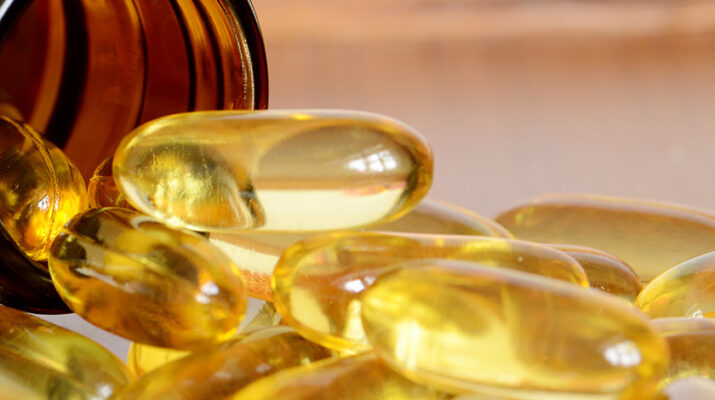Dietary supplements to support eye health have gained traction among healthcare providers and eye specialists. But not every supplement is the same
By Deborah Jeanne Sergeant
If you experience vision problems or feel concern that you could, a dietary supplement may be helpful.
However, it’s not as easy as popping an “eye formula” pill every day.
Dietary supplements to support eye health have gained traction among healthcare providers and eye specialists. But not every supplement is the same.
Andrew Reynolds, doctor of ophthalmology with UB, divides supplements into those related to a specific disease, commonly dry macular degeneration and general eye health supplements. For the former, he encourages people to look for supplements with AREDs on the label, which indicates the ingredients align with the National Eye Institute’s clinical trial on age-related eye diseases from 1992 to 2001.
“If it has the ingredients in that study, it will be on the box,” Reynolds said. “People with somewhat intermediate macular degeneration, it has been shown that supplement slows the progression to severe by 25%.”
Macular degeneration is a progressive eye condition that causes permanent loss of central vision. More than one in three adults 75 and older will experience macular degeneration. The condition causes deterioration of the central part of the retina at the back of the eye.
“Of course, everyone wants a ‘magic bullet’ to extend our life by 20 years and give us 20/20 vision,” Reynolds said. “But there’s good evidence that a well-balanced diet is helpful.”
He added that people predisposed to vitamin deficiency should discuss supplementation with their healthcare providers.
“In this country, if you have a reasonable diet, it is rare to become dangerously vitamin deficient,” he added.
People who have undergone bariatric surgery, experience chronic alcoholism or consume vegan diets may need supplements, he offered as examples.
For natural sources of these nutrients, Noelle Citarella, registered/certified dietitian nutritionist and integrative/functional nutrition certified practitioner with Buffalo Nutrition and Dietetics, advises eating a diet that includes foods rich in antioxidants such as dark, leafy greens; colorful fruits like oranges and blueberries; and those offering lutein and zeaxanthin, including broccoli, corn, peans, persimmons and tangerines.
“Vitamin C is an antioxidant that’s eye protective,” she said.
Sources include citrus fruits, strawberries, red bell peppers and broccoli.
“Vitamin E is also helpful, as it’s an antioxidant,” Citarella added.
Include vegetable oil, nuts, seeds, wheat germ in the diet, along with sources of omega 3 fatty acids found in fish like salmon, mackerel, anchovies, sardines and herring.
“You can also get it from black cod and halibut and some in tuna and shrimp,” Citarella said.
Vegans can turn to algae supplements for omega 3s, although animal sources are better absorbed by the body.
Zinc also supports eye health and is found in beef, oysters, shellfish, nuts, pumpkin seeds and other seeds.
Of course, these foods should be eaten as reasonable servings as part of a balanced diet low in processed foods, added animal-sourced fat, salt and sugar and moderate in overall calories.
Poor diet, smoking, unmanaged diabetes, obesity and cardiovascular disease raise risk of vision problems such as macular degeneration. Taking care of these issues can help mitigate risk such as genetic predisposition and advanced age.
Talk with a healthcare provider about vision concerns and before making changes in diet or taking dietary supplements. Any sudden loss of vision requires immediate medical attention.

